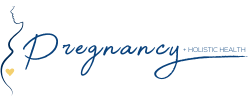There’s no doubt about it – pregnancies are stressful. For expectant mothers who are naturally anxious and prone to stress or who are experiencing anxiety for the first time, finding a way to safely manage anxiety during your holistic pregnancy is a tall order.
If you’re committed to maintaining your pregnancy health naturally, you should know that you will be facing multiple questions of herbal remedy safety. For example, one of the key questions being asked now is regarding the safety of CBD oil during pregnancy.
Is CBD Oil Safe During Pregnancy?
As one of the most popular current holistic remedies, CBD oil is under a lot of scrutiny from research studies to determine its safety and efficacy. But while researchers are sure that CBD oil is safe to use orally and topically for most people, pregnant women are once again considered a population of their own and the exception to the rule.
What the Experts Say for Pregnancy Health
The fact of the matter is that experts aren’t sure if CBD oil will negatively affect pregnancy health or not. While the FDA strongly advises against the use of CBD oil and other marijuana products during pregnancy, some expert opinions dissent, suggesting that CBD oil is safe for pregnant women who meet certain criteria.
The truth is that research is still too new for experts to determine whether using CBD oil during pregnancy is safe for the fetus or not.
Why Expectant Moms Might Use CBD Oil
There are plenty of reasons why expectant mothers might want to use CBD oil during pregnancy. CBD oil is a natural remedy that is being used to holistically treat a score of health concerns, from anxiety to pain to arthritis, and there is more promising research being done every day to test the efficacy of CBD oil on complex medical issues, such as epilepsy.
For pregnant women, CBD oil might be a way to relieve nausea, vertigo, poor appetite, pain, headaches, anxiety, and stress. Consult with your physician to determine if CBD oil is a good option for your pregnancy.
4 Holistic Pregnancy Natural Alternates to Try
If you aren’t sure you want to gamble on CBD oil, but you still want to use natural remedies, try using other herbal solutions for your holistic pregnancy. Some of these alternates are non-cannabis cannabinoids, which are plants that can mimic the effects of CBD, while others are natural remedies that are backed by science.
NOTE: Some of the links in this post might be affiliate links. This means that if you click on the link and make a purchase, we’ll receive a small commission – at no extra cost for you, which helps us cover the costs for the blog.
1. Ginger Root
Ginger root is a non-cannabis remedy that is an excellent anti-inflammatory. Ginger root in tea can help manage nausea and morning sickness.
2. Echinacea
Echinacea is a non-cannabis cannabinoid that can help alleviate pain and boost the immune system. Echinacea can be taken as a supplement or as a tea.
3. Chamomile
Chamomile is a calming herb that is anecdotally used to manage anxiety. Drinking chamomile tea during pregnancy is safe in small quantities.
4. Lemon Balm
Lemon balm is an herb that is commonly used to treat insomnia and calm anxiety. Lemon balm can be used safely during pregnancy to relieve stress and boost your mood.
While CBD oil may or may not be safe to use during pregnancy, there are other alternatives. Using herbal teas that include ginger root, echinacea, chamomile, and lemon balm are good ways to manage your holistic pregnancy. If you have questions about your pregnancy health, always consult with your physician.
This article is not intended to be a substitute for professional medical advice, diagnosis, or treatment. Always seek the advice of your physician or other qualified health provider with any questions you may have regarding a medical condition. Never disregard professional medical advice or delay in seeking it because of something you have read on this website.
